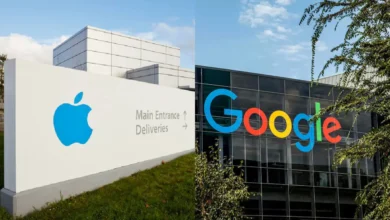Google Employee Charged with Stealing AI Trade Secrets

A former Google employee, Linwei Ding, also known as Leon Ding, faces charges of stealing trade secrets related to the company’s artificial intelligence (AI) technology. The 38-year-old Chinese national, residing in California, allegedly copied over 500 confidential files from Google’s systems over a year, starting in 2022.
Prosecutors claim Ding, who worked on developing software for Google’s supercomputing data centers, used his access to steal information about the hardware, software platforms, and AI models used in these facilities. These stolen files are considered crucial building blocks of Google’s advanced technology, raising concerns about potential national security risks.
Attorney General Merrick Garland emphasized the department’s commitment to protecting sensitive American technologies. He stated, “We will not tolerate the theft of artificial intelligence and other advanced technologies that could put our national security at risk.”
Ding faces four counts of theft of trade secrets, each carrying a potential sentence of up to 10 years in prison. No legal representation for Ding was available as of this report. This incident highlights the growing concerns and efforts surrounding the protection of sensitive technology and its potential implications for national security.
Following the alleged theft of confidential information, the Justice Department claims Linwei Ding’s activities further raise concerns about his motives and potential national security risks.
Alleged Lucrative Opportunity in China:
A few months after initiating the copying of Google’s files, Ding reportedly received a Chief Technology Officer (CTO) position at a Chinese AI startup. During his time in China, Ding participated in investor meetings for the company, portraying himself as an executive and shareholder.
To conceal his physical location, prosecutors allege Ding had another employee use his badge to access his Google office, creating the illusion of his presence in the United States. Within a year, Ding allegedly established his own AI and machine learning company in China. This new company reportedly boasted about its experience with Google’s powerful computing platform and expressed its intention to replicate and improve upon it for the Chinese market.
Google’s Response:
In response to the accusations, Google stated it conducted a comprehensive investigation and promptly alerted the FBI. A Google spokesperson emphasized that Ding was a junior employee and that the company actively monitors file transfers to cloud storage platforms.
These developments suggest Ding may have intended to leverage stolen Google technology for personal gain, potentially impacting national security interests. The case highlights the complexities of protecting sensitive information in an increasingly interconnected global environment.
Google Denies Security Lapses in Trade Secret Theft Case
In response to the allegations against Linwei Ding, Google’s spokesperson, José Castañeda, reaffirmed the company’s commitment to protecting its confidential information. Castañeda emphasized the existence of “strict safeguards” in place to prevent the theft of sensitive data and trade secrets.
Google acknowledges conducting a thorough investigation upon discovering the alleged theft. They promptly reported the incident to law enforcement, specifically the FBI.
Google expresses gratitude to the FBI for their assistance in protecting the company’s information and pledges continued collaboration with the authorities.
While the case raises concerns about potential security breaches, Google’s statement suggests they have measures in place to detect unauthorized access and actively collaborate with law enforcement to address such incidents. The ongoing investigation will likely shed further light on the specifics of the case and the effectiveness of Google’s security protocols.




